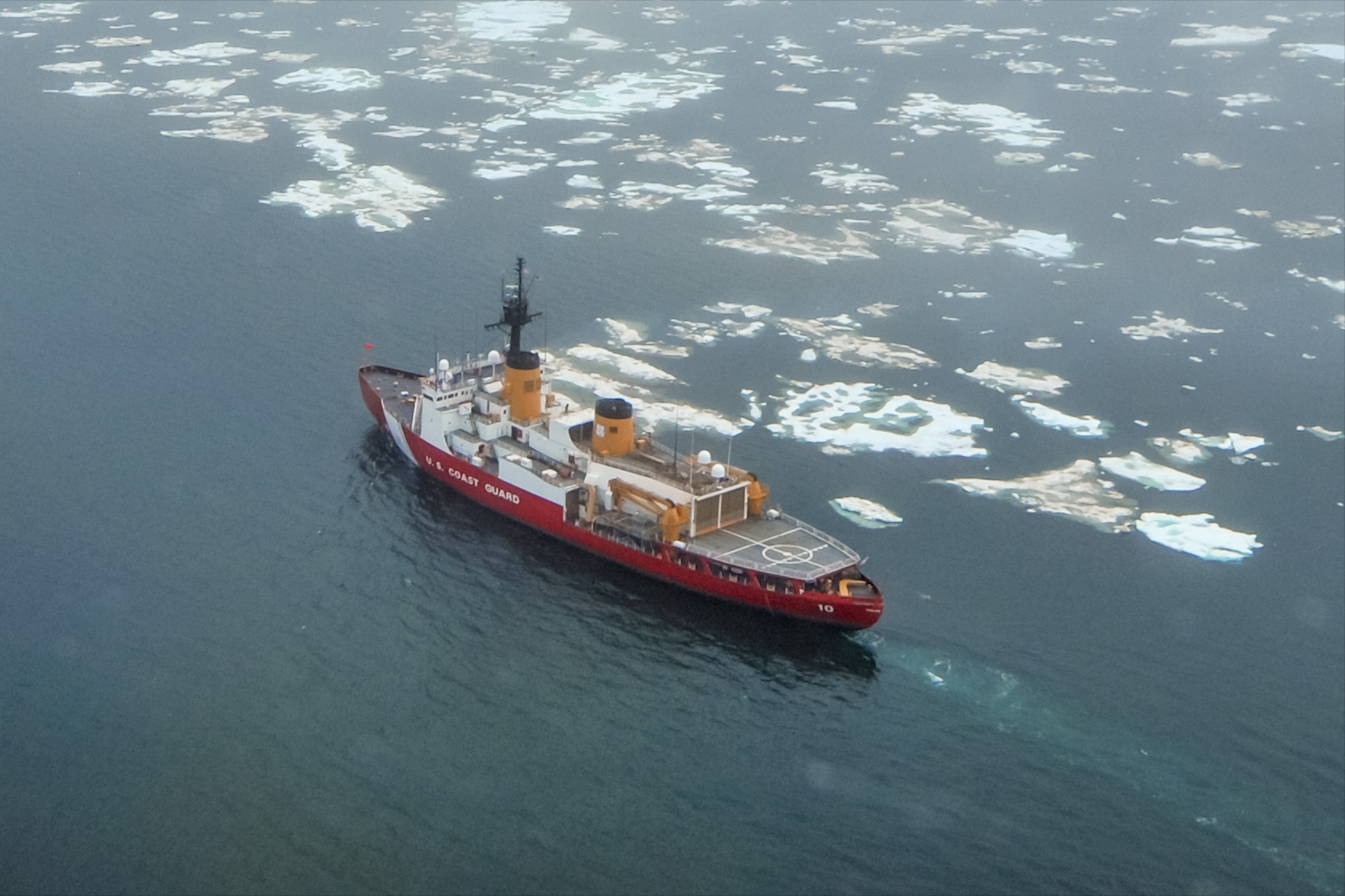The US keeps falling further behind other nations in preparing for the opening of the Arctic Ocean
“The ice does not care who is in the White House or who controls the Congress. It just melts.”

Meteorologist David Titley, a professor at Penn State, is a retired Navy admiral, which means “I do not have to start everything with, ‘I support the president’s budget,” he joked during testimony at a recent U.S. House hearing on Arctic issues.
It also means he is free to speak his mind, and he sees cause for concern in how the U.S. government is approaching the Arctic.
With the regional climate changing faster than anyplace else in the world, the U.S. has yet to prepare for a future that will be very different than the past.
“It’s important we step back and consider the obvious; we have never been in a position in the modern world where access to an entire ocean opened up within a matter of decades,” he said during a June 7 hearing on Arctic maritime transportation.
During his latter years in the Navy, Titley led a naval task force on climate change, a group that formed after the sea ice collapse in 2007. He said that work led him to believe that ignoring changes in the Arctic could lead to a crisis.
Winter weather can still be brutal at times and fog is a constant threat, but the trend is clear, with ice-free Arctic summers not far off. The total extent of ice coverage is shrinking and the ice is getting thinner.
“These changes combined lead to a much more variable and dynamic icepack that will make maritime transportation more tempting, more feasible, and paradoxically more hazardous due to rapidly changing and less predictable conditions,” Titley said.
The United States has paid little attention to the Arctic, aside from sporadic incidents, while Russia and China have taken deliberate steps to increase their investments and resources, he said.
Russia is developing the Northern Sea Route for energy shipments and cargo, as well as rebuilding its Arctic military capabilities, while China has declared itself a “near Arctic state.”
He said a ship carrying liquefied natural gas set a transit speed record for commercial shipping across the Northern Sea Route last August, while another ship made the trip in February with no icebreaker assistance.
“While there are good technical reasons to believe these are one-off events, many revolutions are not recognized until they are well underway,” he said.
China is courting the Nordic states and Greenland, “likely looking for a combination of natural resources and an Atlantic terminus to any future trans-polar shipping route.”
The U.S. has to improve its understanding of what Russia and China are doing and catch up on security, scientific and social issues.
Russia and China have already set up permanent research facilities on Svalbard. The U.S. should follow and would likely be welcomed by the Norwegians under terms of the 1920 Treaty of Svalbard.
The U.S. has outdated charts on 95 percent of its Arctic maritime territory, it lacks a deepwater Arctic port and communications facilities are outdated or nonexistent.
“There is still much work to do charting safe passages and routes for the Arctic. If you get in trouble, you may be on your own. The current routes available for navigating across the Arctic have significant draft limitations for modern commercial shipping,” he said.
The National Defense Strategy of the U.S. declares “it is increasingly clear that China and Russia want to shape a world consistent with their authoritarian model—gaining veto authority over other nations’ economic, diplomatic, and security decisions.” But the strategy adopted by the Department of Defense does not mention the Arctic, an oversight that prompted Congress to insist on a new analysis later this year.
Development of a clear U.S. strategy, Titley said, would “demonstrate long-term commitment to our sovereign interests, reassure our allies, and send an unmistakable message to our great power rivals.”
He said the Navy has not sent a ship to train with allies in the Arctic since 2010, that the Coast Guard needs more icebreakers, and that the Senate needs adopt the UN Convention on the Law of the Sea.
A commitment to plan for challenges and opportunities is essential, Titley said, because hope is not a good strategy.
“The ice does not care who is in the White House or who controls the Congress. It just melts.”
Columnist Dermot Cole, who lives in Fairbanks, can be reached at de*********@gm***.com.